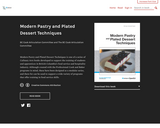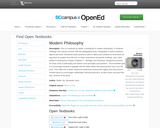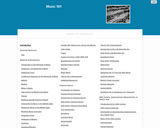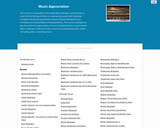
8th Grade Chapter 5: Functions - Parent Workbook
- Subject:
- Mathematics
- Secondary Mathematics
- Material Type:
- Textbook
- Provider:
- Middle School Math - University of Utah
- Provider Set:
- Middle School Math 8th Grade
- Date Added:
- 09/18/2019

8th Grade Chapter 5: Functions - Parent Workbook

8th Grade Chapter 5: Functions - Student Workbook

8th Grade Chapter 6: Statistics - Patterns of Association in Bivariate Data - Mathematical Foundation

8th Grade Chapter 6: Statistics - Patterns of Association in Bivariate Data - Student Workbook

8th Grade Chapter 7: Rational and Irrational Numbers - Mathematical Foundation

8th Grade Chapter 7: Rational and Irrational Numbers - Student Workbook

8th Grade Chapter 8: Integer Exponents, 3D Measurement Problems - Mathematical Foundation

8th Grade Chapter 8: Integer Exponents, 3D Measurement Problems - Parent Workbook

8th Grade Chapter 8: Integer Exponents, 3D Measurement Problems - Student Workbook

8th Grade Chapter 8: Integer Exponents, 3D Measurement Problems - Teacher Workbook

8th Grade Chapter 9: Geometry I - Transformations, Congruence, Similarity - Mathematical Foundation

8th Grade Chapter 9: Geometry I - Transformations, Congruence, Similarity - Parent Workbook

8th Grade Chapter 9: Geometry I - Transformations, Congruence, Similarity - Student Workbook

8th Grade Chapter 9: Geometry I - Transformations, Congruence, Similarity - Student Workbook - Editable

Middle School Math: 8th Grade Textbook - Complete Student Workbook

A collaboration between the National Aeronautics and Space Administration (NASA) and the CK-12 Foundation, this book provides high school mathematics and physics teachers with an introduction to the main principles of modeling and simulation used in science and engineering. An appendix of lesson plans is included.

Modern Pastry and Plated Dessert Techniques is one of a series of Culinary Arts books developed to support the training of students and apprentices in British Columbia’s food service and hospitality industry. Although created with the Professional Cook and Baker programs in mind, these have been designed as a modular series, and there for can be used to support a wide variety of programs that offer training in food service skills.

This is a textbook (or better, a workbook) in modern philosophy. It combines readings from primary sources with two pedagogical tools. Paragraphs in italics introduce figures and texts. Numbered study questions (also in italics) ask students to reconstruct an argument or position from the text, or draw connections among the readings. And I have added an introductory chapter (Chapter 0 Minilogic and Glossary), designed to present the basic tools of philosophy and sketch some principles and positions. The immediate goal is to encourage students to grapple with the ideas rather than passing their eyes over the texts. This makes for a better classroom experience and permits higher-level discussions. Another goal is to encourage collaboration among instructors, as they revise and post their own versions of the book.

Welcome to Music 101. I think youve made a smart choice to spend some weeks studying some of the greatest music ever written. Consider for a moment how quickly a hit pop song passes from fashionable to forgotten. Those of us that have been out of high school or college more years than we care to remember have certainly had the experience of hearing a favorite anthem of our youth and thinking, Oh yeah, that song! Id forgotten that one. Think about that: the song was totally loved, then completely forgotten within a matter of just a few years. Then consider that many of the composers that we will study have been dead for over two hundred years, and yet their music has never been forgotten and never stopped being performed and loved. That, quite simply, is amazing.

This course is an exposition of the philosophy, principles, and materials of music from the Baroque Period to contemporary period with illustrative examples from the Baroque Period, Classical Period, Romantic Period, Contemporary Classical Music and Popular Music. The course is designed to give the student an appreciation of music by exposing them to many musical styles, composers, historical trends, as well as increasing their aural, verbal and writing skills in describing music.